In Memoriam Salk mourns the loss of Joanne Chory
Salk Professor Joanne Chory, one of the world’s preeminent plant biologists who led the charge to mitigate climate change with plant-based solutions, died on November 12, 2024, at the age of 69 due to complications from Parkinson’s disease. She was diagnosed with Parkinson’s in 2004 and, despite the challenges, continued to lead her research team until the time of her death.
Chory, who was also a Howard Hughes Medical Institute investigator, spent more than 30 years studying how plants respond to their environments, and she made many important discoveries regarding how plants sense light and make growth hormones.
“Joanne was one of the most influential plant biologists of the modern era and a beloved member of the Salk community. Her leadership, compassion, and joy will be forever missed on our campus and beyond,” says Salk President Gerald Joyce. “It has been a true privilege to know Joanne. Her brilliant work will live on, and just might save the world.”
Chory joined the Salk Institute in 1988 as an assistant professor and one of the first plant biologists at the Institute. Most recently, she was a full professor, directed Salk’s Plant Molecular and Cellular Biology Laboratory, and held the Howard H. and Maryam R. Newman Chair in Plant Biology.
“Joanne was a trailblazer in the field of plant genetics, and for more than 30 years, she made seminal discoveries about how plants interact with and adapt to the environment. In the past eight years, she used the fruits of these discoveries to reconceptualize the problem of global carbon and advance a solution which is affordable, scalable, and available in a reasonable timeframe,” says Howard Newman, a long-time Salk Trustee. “She will thus leave commanding legacies in both pure and applied science.”
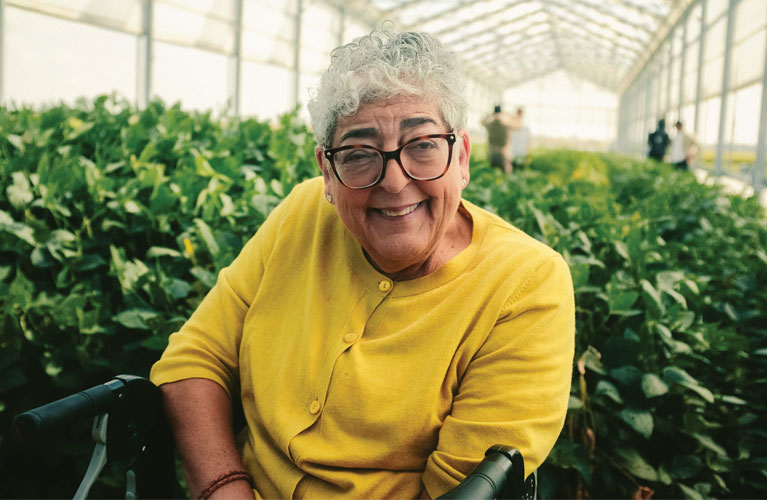
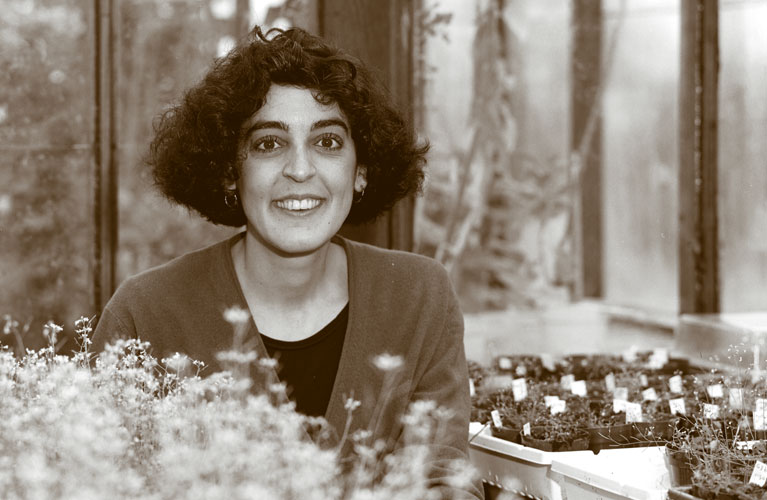
Working with Arabidopsis thaliana, a small mustard plant and favorite laboratory model, Chory pioneered the application of molecular genetics to plant biology. She used emerging tools to reveal how plants alter their size, shape, and form to optimize growth and photosynthesis in various environments.
For example, shortly after arriving at Salk, Chory revealed that an Arabidopsis mutant called DET1 could grow in the dark. It turned out that the DET1 gene was responsible for how plants respond to light. She determined the gene’s sequence and exact location in the genome. Further studies on another DET gene, DET2, ultimately unveiled the entire plant steroid hormone signaling system and the distinct roles of specific hormones.
Taking this work to one of the world’s most pressing challenges, Chory was the founding director of Salk’s Harnessing Plants Initiative, a bold effort to optimize crop and wetland plants to pull excess carbon dioxide out of the atmosphere to mitigate the effects of climate change. Under Chory’s leadership, the Initiative received a $35 million award from the TED Audacious Project and $30 million from the Bezos Earth Fund. In 2022, the Initiative spun out the company Cquesta Inc., co-founded by Chory, to scale up and commercialize carbon-sequestering plants. In 2023, Hess Corporation donated $50 million to support plant research at Salk. The Harnessing Plants Initiative is currently led by Executive Director Wolfgang Busch, Salk professor and holder of the Hess Chair in Plant Science.
“Her bright mind, her incredible passion, her energy, and her deep insights into science—and what science can be—were one of a kind. It had been such a privilege to work with her, to get to know her as a person, and to have her as a friend. The loss is immeasurable.”
–Professor Wolfgang Busch
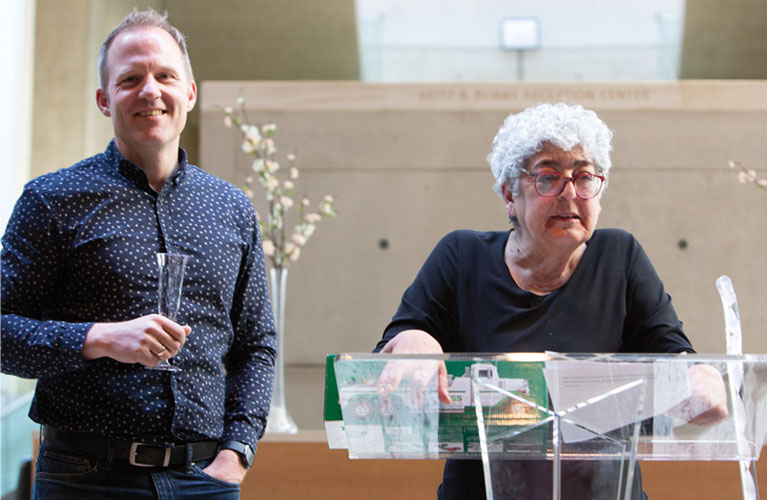
“Joanne and I worked very closely together over the past several years,” Busch says. “Her bright mind, her incredible passion, her energy, and her deep insights into science—and what science can be—were one of a kind. It had been such a privilege to work with her, to get to know her as a person, and to have her as a friend. The loss is immeasurable.”
Chory was a member of several elite scientific academies, including the US National Academy of Sciences and the American Academy of Arts and Sciences. She was one of the most highly cited researchers in the world for her scientific publications, ranking in the top 1 percent. She was recognized with numerous awards, including the L’Oreal-UNESCO Women in Science Award, the Gruber Genetics Prize, the Breakthrough Prize in Life Sciences, the Princess of Asturias Award, the Pearl Meister Greengard Prize, the Wolf Prize in Agriculture, and the Benjamin Franklin Medal in Life Science.
Born on March 19, 1955, in Boston, Massachusetts, Chory was raised with five siblings by Lebanese parents. She attended Oberlin College for her undergraduate degree in biology and completed her PhD in microbiology at the University of Illinois Urbana-Champaign in 1984. She was a postdoctoral fellow at Harvard Medical School under the mentorship of Frederick Ausubel.
Chory is survived by her husband, Stephen, her two children, Katie and Joe, and granddaughter, Sadie Jo.
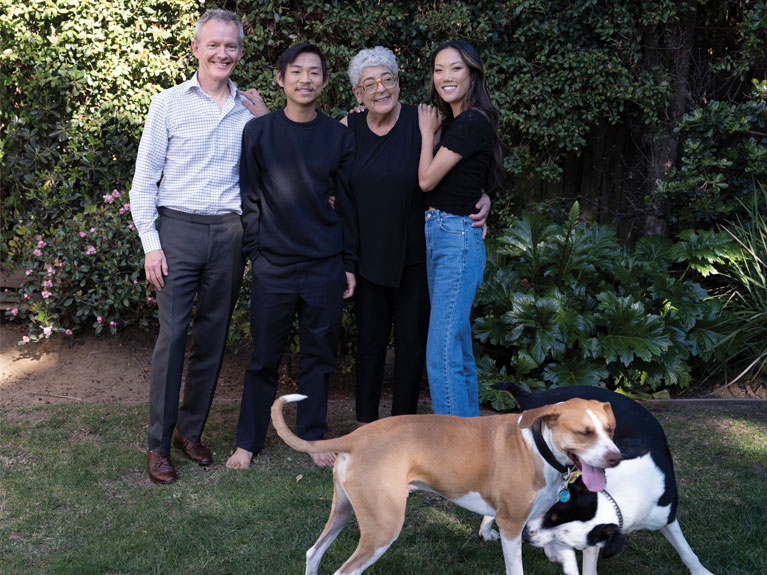
Featured Stories
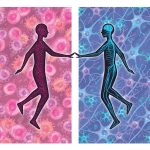 Connecting the dots—From the immune system to the brain and back againBy collaborating across disciplines like genetics, neuroscience, and immunology, Salk scientists are uniquely positioned to lead us into a future of healthier aging and effective therapeutics for Alzheimer’s.
Connecting the dots—From the immune system to the brain and back againBy collaborating across disciplines like genetics, neuroscience, and immunology, Salk scientists are uniquely positioned to lead us into a future of healthier aging and effective therapeutics for Alzheimer’s.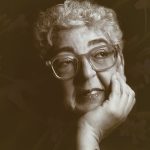 Salk mourns the loss of Joanne ChorySalk Professor Joanne Chory, one of the world’s preeminent plant biologists who led the charge to mitigate climate change with plant-based solutions, died on November 12, 2024, at the age of 69 due to complications from Parkinson’s disease.
Salk mourns the loss of Joanne ChorySalk Professor Joanne Chory, one of the world’s preeminent plant biologists who led the charge to mitigate climate change with plant-based solutions, died on November 12, 2024, at the age of 69 due to complications from Parkinson’s disease. 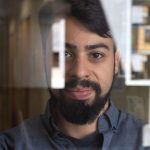 Talmo Pereira—From video game bots to leading-edge AI toolsTalmo Pereira is a Salk Fellow, a unique role that empowers scientists to move straight from graduate school to leading their own research groups without postdoctoral training.
Talmo Pereira—From video game bots to leading-edge AI toolsTalmo Pereira is a Salk Fellow, a unique role that empowers scientists to move straight from graduate school to leading their own research groups without postdoctoral training.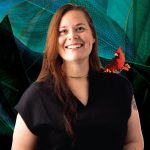 Kay Watt—From Peace Corps to plant scienceAt the heart of the Harnessing Plants Initiative is Program Manager Kay Watt who tackles all of the strategy, site operations, budgeting, reporting, communication, and outreach that keep the whole program on track.
Kay Watt—From Peace Corps to plant scienceAt the heart of the Harnessing Plants Initiative is Program Manager Kay Watt who tackles all of the strategy, site operations, budgeting, reporting, communication, and outreach that keep the whole program on track. 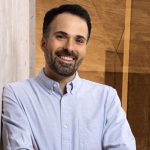 Pau Esparza-Moltó—Seeing mitochondria as more than just a powerhousePau Esparza-Moltó, a postdoctoral researcher in Professor Gerald Shadel’s lab, finds comfort in the similarities between his hometown in Spain and San Diego, where he now studies cell-powering mitochondria.
Pau Esparza-Moltó—Seeing mitochondria as more than just a powerhousePau Esparza-Moltó, a postdoctoral researcher in Professor Gerald Shadel’s lab, finds comfort in the similarities between his hometown in Spain and San Diego, where he now studies cell-powering mitochondria.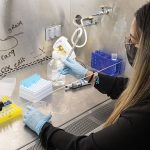 Salk summer programs bring equity and opportunity to the STEM career pipelineThe Salk Institute recently hosted two inaugural events designed to enhance diversity within the scientific community: the Rising Stars Symposium and the Diverse Inclusive Scientific Community Offering a Vision for an Ecosystem Reimagined (DISCOVER) Symposium.
Salk summer programs bring equity and opportunity to the STEM career pipelineThe Salk Institute recently hosted two inaugural events designed to enhance diversity within the scientific community: the Rising Stars Symposium and the Diverse Inclusive Scientific Community Offering a Vision for an Ecosystem Reimagined (DISCOVER) Symposium.






















































